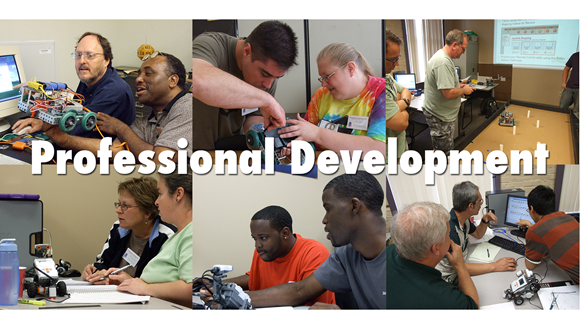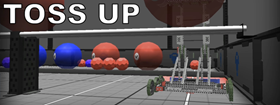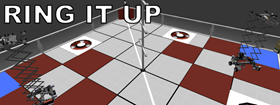
Robohub.org
Robotics Summer of Learning at CMU
This summer, students have the opportunity to learn how to program robots, design games, animate stories, and earn a chance to win over $10,000 in prizes and scholarships! The Robotics Summer of Learning program hopes to effectively increase students’ interest in STEM (science, technology, engineering, mathematics) related fields. The program is hosted online at the Computer Science Student Network (CS2N).
The Summer of Learning initiative is sponsored by Carnegie Mellon’s Robotics Academy – an educational outreach of Carnegie Mellon University and a part of the university’s world-renowned Robotics Institute. It’s mission is to develop educational tools and resources to use the motivational effects of robotics to excite students and teachers about science and technology.
Here are the features and challenges that will be offered through the Robotics Summer of Learning…
Programming Robots
The Robotics Summer of Learning will offer students the opportunity to program a variety of robots in deep space, on a tropical island, and a VEX or FTC game board. The robots are programmed in ROBOTC, a programming language for LEGO, VEX and Arduino robots. Beginning ROBOTC users are able to utilize simple Natural Language commands like forward, reverse, and pointTurn at the introductory level and then migrate to full C-Programming to learn advanced computer science concepts like recursion, pointers, multitasking/threading, and multi-agent communications.
Students will program the virtual robots using ROBOTC’s Robot Virtual Worlds (RVW) software, an interactive educational video game software that allows every student to experience the same benefits of learning robotics and programming without needing a physical robot. RVW tracks and stores student’s progress, through CS2N, as they solve different levels in each World. After successfully completing a World, students earn a badge that documents their achievements. At the end of the summer, students will have the opportunity to take an exam that will earn them a Carnegie Mellon Robotics Academy programming certification, which can be included in the student’s academic portfolio.
Introductory programming lessons are taught in the tropical themed Palm Island, one of three virtual environments in Robot Virtual Worlds. Once students learn the basics in their first mission, they are then challenged to complete missions on Planet H99 in deep space, and underwater in the Ruins of Atlantis. The final challenge is a national robot programming competition that will include over ten thousand dollars in scholarships and prizes. Two new “programming only” robotics game have been developed specifically for the Robotics Summer of Learning programming competition, which take advantage of current VEX and FTC games in Robot Virtual Worlds. The games are played by autonomously programming your robot to place objects into scoring positions as quickly as possible.
CS2N’s VEX Toss Up challenges you to program your autonomous virtual robot with ROBOTC to score as many points as possible, via scoring or locking BuckeyBalls and large balls, as well as hanging from a colored bar!
CS2N’s FTC “Ring It Up!” challenges you to program your autonomous virtual robot with ROBOTC to score as many points as possible, via hanging rings on the center or corner post hangers and placing rings on the red floor tiles!
Animation
Animation programming languages, such as Scratch and Alice, make it easy for students to create video stories, animations, games, music, and art. By using storytelling and animation as a motivator, students learn the importance of the design process while using and learning interactive programming software. CS2N offers free tutorials to get you started in both programs!
Our Robotics Summer of Learning Animation Challenge is called Nature Doc-u-mentary. This challenge asks students to write a narrative introducing a creative new creature and make an animated documentary focused on your new subject using either Scratch or Alice 2.0.
Game Design
Designing a digital game gives students the opportunity to creatively brainstorm ideas, create 3D objects to import into the game board, learn how to program in order to test the success of the game, and challenge them to think of ways to advance and optimize the gameplay. Robot Virtual Worlds comes with two great tools, the Level Builder and the Model Importer. The Level Builder uses a 12-inch by 12-inch board and our “desktop” models to create their very own Robot Virtual World. The Model Importer allows students to import their own 3D models into Level Builder to take their game to the next level. Students can use both tools while designing their own game board for a virtual robot to successfully complete!
Our Robotics Summer of Learning Game Design Challenge is called Beacons and Barriers. This challenge will have users focus on creating levels for a virtual robot to navigate through. They will use the Model Importer, included in Robot Virtual Worlds, to create objects to serve as checkpoints and obstacles.
The Robotics Summer of Learning Program is excited by the opportunity to advance students’ interests in STEM and advance their programming skill sets! Software and training will be provided for free throughout the summer. Students will have 24/7 access to the online course materials, as well as professional support from developers of the software and curriculum. There will be over $10,000 in prizes available to participants in the challenges, including free software, robot kits, and college scholarships. The Robotics Summer of Learning kicks off on June 1 and runs to September 1, 2013.
Sign up today for the Robotics Summer of Learning!
Professional Development

Also offered during the summer are our Professional Development courses, which do have an associated tuition fee. These courses provide teachers and coaches with a solid foundation for robot programming in the respective languages, and experience in troubleshooting common student mistakes. It also focuses on identifying and extracting academic value from the naturally occurring STEM situations encountered in robotics explorations. Classes are available on-site or online.
tags: c-Events, CMU, robotics, summer courses







